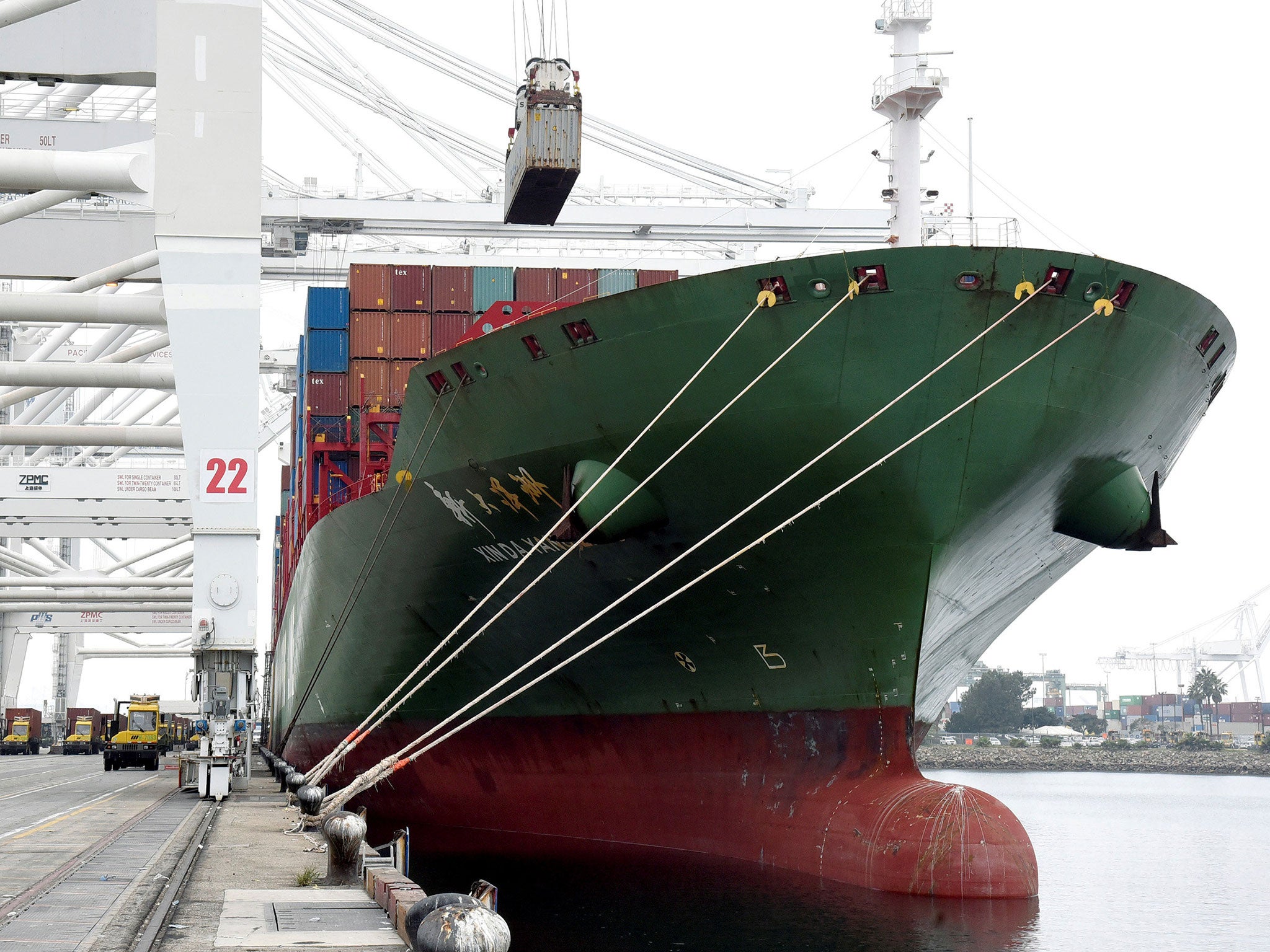Carbon emissions from global shipping to be halved by 2050, says IMO
'The world’s shipping industry has now, for the first time, defined its commitment to tackle climate change'

Carbon emissions from the global shipping industry will be cut by at least half by 2050 under a major new international agreement.
Representatives from over 170 countries have spent two weeks at the International Maritime Organisation (IMO) in London debating ways to clean up the sector.
Despite opposition from nations including Brazil, Saudi Arabia and the US, the states came to a final agreement on Friday, signalling to industry that a switch away from fossil fuels is fast approaching.
Ultimately the goal is for shipping’s greenhouse gas emission to be reduced to zero by the middle of the century, with most newly built ships running without fossil fuels by the 2030s.
"Like Apollo 11 returning to Earth we knew we needed to land and we did,” said Sveinung Oftedal, chair of greenhouse gas negotiations at the IMO.
Pollution from ships is a major concern, but one that has been largely overlooked in recent years.
One estimate by the International Council on Clean Transportation found that if treated as a country, international shipping would be the sixth largest emitter of carbon dioxide in the world – roughly the same as Germany.
Shipping currently accounts for 2 per cent of global carbon dioxide emissions, and if the sector is not cleaned up experts predict this figure could rise to a fifth of emissions by 2050.
Despite its major role in polluting the planet, shipping was not accounted for in the Paris agreement on climate change.
10 photographs to show to anyone who doesn't believe in climate change
Show all 10Mounting pressure has grown on the IMO to come up with a solution to this problem, as it was tasked with limiting and reducing emissions from shipping under the Kyoto Protocol in 1997.
“The International Maritime Organisation’s commitment to reduce greenhouse gases by 50 to 100 per cent in 2050 is major progress,” said Dr Tristan Smith, a shipping expert at University College London.
“The world’s shipping industry has now, for the first time, defined its commitment to tackle climate change, bringing it closer in-line with the Paris agreement.”
The UK government was supportive of the more ambitious end of the targets proposed, pushing for global shipping to abandon fossil fuels entirely within three decades.
However, there has been pushback from nations that fear rapid changes to the shipping sector will damage their economies.
The new announcement calls for greenhouse gas emissions to be slashed by “at least” 50 per cent – wording that is meant to imply anywhere between 50 and 100 per cent.
This is intended to appease Pacific Island states delegations. The London talks have had particular significance for Pacific islanders, whose countries are imminently threatened by rising sea levels.
At the outset of the meeting, Marshall Islands environment minister David Paul laid out his concerns about the threats facing his country.
“The next days in IMO will determine whether Marshallese children born today will have the chance of a secure and prosperous life or will have to leave the land of their ancestors and set sail across the oceans to an uncertain future,” he said.
“This is scientific fact.”
The Marshall Islands – a tiny group of atolls in Micronesia – are home to around 70,000 people, and experts predict under future climate scenarios it is likely they will all have to be evacuated as the sea levels rise.
In a joint statement released before Friday’s announcement, Mr Paul and former UN chief negotiator on climate change, Christiana Figueres, said the strategy represented “significant compromises by countries – not least by vulnerable island nations which had been pushing for something far more ambitious".
“To get to this point has been hard – very hard,” they said.
The new targets are expected to have a significant impact on the shipping industry.
"A 50 per cent reduction in outright greenhouse gas emissions means most new ships built in the 2030s will have to be zero emission," said Dr Faig Abbasov, shipping policy expert with the Brussels-based NGO Transport and Environment.
However, an intervention early in the talks by the International Chamber of Shipping – the leading industry association – made it clear they would support reductions in carbon emissions from the sector.
Commentators noted that support from industry reduced the credibility of nations arguing that proposed reduction targets were unrealistic.
"The 2050 goal is achievable. We have in the pipeline some new builds that will use fuel cells,” said Olof Widen, senior advisor at the Finnish Shipowner's Association.
“When we have a critical mass of these solutions, then we will have a very rapid development."
Subscribe to Independent Premium to bookmark this article
Want to bookmark your favourite articles and stories to read or reference later? Start your Independent Premium subscription today.

Join our commenting forum
Join thought-provoking conversations, follow other Independent readers and see their replies